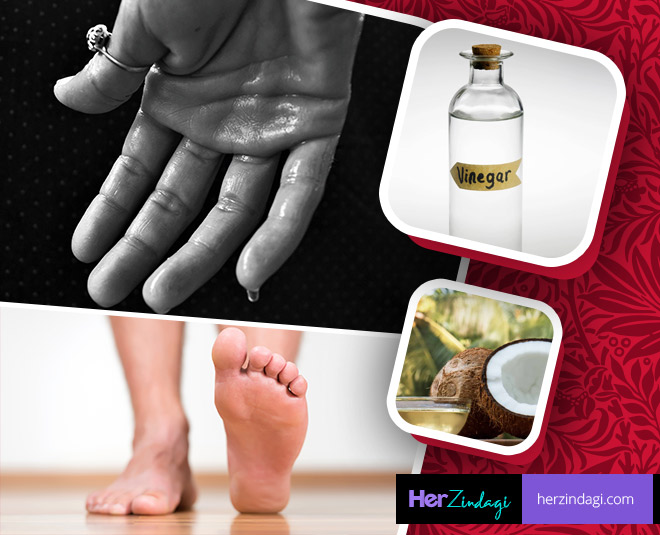Expert Dermatology Solutions for Treatment of Hyperhydrosis of Hands: Comprehensive Guide
Expert Dermatology Solutions for Treatment of Hyperhydrosis of Hands: Comprehensive Guide
Blog Article
Comprehending the Origin of Excessive Sweating and Its Impact on Every Day Life
Too much sweating, also known as hyperhidrosis, is a condition that impacts a significant part of the populace, yet its hidden reasons and effects on daily functioning stay somewhat enigmatic. While it is frequently recognized as a physiological action to manage body temperature level, the triggers for too much sweating can differ extensively amongst people, encompassing not only physical factors but likewise psychological and emotional aspects. The influence of this problem prolongs beyond simple discomfort, often influencing social communications and total high quality of life. By diving into the origin of hyperhidrosis and exploring its multifaceted effects, a deeper understanding of this pervasive issue can be gotten, clarifying the complexities that individuals coming to grips with too much sweating navigate each day.
Physiology of Sweat Glands
The policy of sweat manufacturing, a crucial physiological procedure, is primarily regulated by the activity of gland distributed throughout the body. Sweat glands are classified into 2 main kinds: eccrine and apocrine glands. Eccrine glands are the most countless and are found in virtually all areas of the body. They play an essential role in thermoregulation by producing a watery liquid onto the skin's surface, which assists and vaporizes cool the body down. On the other hand, apocrine glands are focused in areas rich in hair roots, such as the armpits and groin, and their secretions are thicker and milky in look.
When the body temperature increases, either as a result of exercise, high temperatures, or emotional stress and anxiety, the nerve system activates the gland to generate sweat. This sweat is made up mainly of water and electrolytes like sodium and chloride. The procedure of sweat manufacturing is essential for preserving the body's interior temperature level within a slim, optimum array, highlighting the crucial duty sweat glands play in human physiology.
Triggers for Excessive Sweating
In recognizing the root creates of excessive sweating, it is essential to identify the triggers that can lead to this physiological feedback. Physical effort, high temperatures, and spicy foods are additionally recognized to activate excessive sweating in people prone to this problem.
Additionally, medications such as some antidepressants, opioids, and certain supplements can additionally function as triggers for hyperhidrosis. Understanding these triggers is important in managing extreme sweating effectively - How to stop sweaty hands. By recognizing and attending to the specific triggers that trigger too much sweating in an individual, doctor can establish tailored treatment strategies to reduce this problem and boost the individual's high quality of life
Medical Issue Associated
Related to too much sweating are various clinical problems that can exacerbate this physiological action. One usual condition is hyperhidrosis, a condition identified by extraordinarily increased sweating that exceeds the body's thermoregulatory needs. This can manifest in focal areas like the hands, soles, underarms, or face, influencing a person's quality of life because of social humiliation and pain.
In addition, endocrine problems such as hyperthyroidism, diabetes mellitus, and menopausal warm flashes can additionally cause too much sweating. Hyperthyroidism triggers an overproduction of thyroid hormones, speeding up metabolism and setting off sweating. Diabetes can induce sweating episodes, particularly throughout hypoglycemic episodes when blood sugar level degrees drop too reduced. Menopausal warm flashes, credited to hormonal fluctuations during menopause, can create unexpected and intense sweating, usually gone along with by flushing and heart palpitations.
Moreover, infections like endocarditis, hiv, and consumption have been linked with evening sweats, an usual symptom understood to interfere with rest and influence total well-being. These medical conditions highlight the diverse series of underlying elements that can add to extreme sweating, demanding extensive examination and management by medical care professionals.
Psychological and Emotional Aspects

Influence On Social Communications
Excessive sweating can have profound results on a person's capability to involve comfortably in social interactions. How to stop sweaty hands The noticeable signs of sweat spots or damp patches on garments can bring about embarrassment and self-consciousness, triggering people to withdraw from social circumstances. This withdrawal can influence connections, restriction social activities, and hinder individual and specialist growth.

Moreover, the anxiety and self-confidence concerns coming from extreme sweating can impact communication and social skills. Individuals might battle to concentrate on discussions, join group activities, or reveal themselves confidently. This can cause feelings of isolation and loneliness, as social connections become testing to keep.
Final Thought
While it is frequently comprehended as a physiological response to manage body temperature, the triggers for excessive sweating can differ commonly among people, incorporating not only physical factors yet emotional and likewise emotional components. By diving into the origin causes of hyperhidrosis and discovering its diverse effects, a much deeper understanding of this pervasive concern can be gotten, shedding light on the intricacies that individuals grappling with too much sweating browse on an everyday basis.
Physical exertion, high temperature levels, and spicy foods are also recognized to set off too much sweating in individuals vulnerable to this condition. By recognizing and attending to the particular triggers that motivate excessive sweating in a specific, healthcare providers can establish personalized therapy plans to alleviate this problem and improve the individual's top quality of life.
Excessive sweating can have extensive effects on an individual's capacity to engage easily in social communications.
Report this page